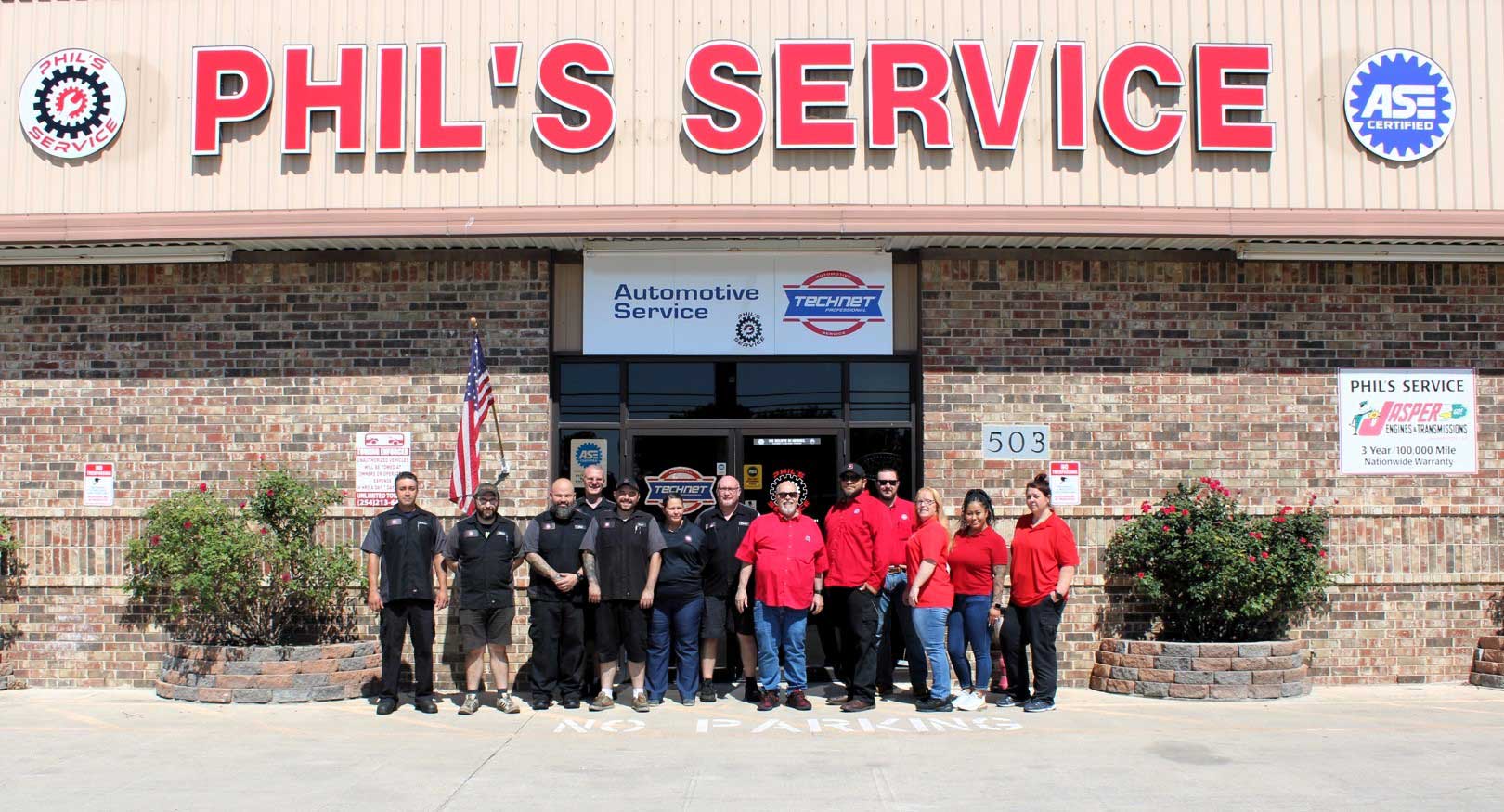Ignoring regular car maintenance is like turning a blind eye to a toothache. It might not bother you now, but it's a ticking time bomb. Just as you wouldn't risk your dental health, you shouldn't gamble with your vehicle's well-being.
In this article, we'll explore the nuts and bolts of regular car maintenance. We'll pay special attention to your tires, those crucial components that keep you safely on the road. But we won't stop there. We'll also discuss other vital aspects of car care, such as oil changes and brake checks. And for those of you in Killeen, TX, we've got some tips on finding a reliable auto repair shop.
So, are you ready to become a car care pro? Keep reading to find out how.
What is Regular Car Maintenance?
Regular car maintenance is the routine care and servicing of your vehicle. Think of it as a wellness check for your car, covering everything from oil changes to tire rotations. It's the preventive medicine of the automotive world.
Definition and Basics
So, what exactly falls under the umbrella of regular car maintenance? It's a series of checks and services that keep your car running smoothly. These can range from simple tasks like topping off fluids to more complex procedures like timing belt replacement.
Importance for Vehicle Longevity
Taking care of your car isn't just about avoiding breakdowns; it's also about extending the life of your vehicle. Maintaining your car regularly can save you from expensive fixes in the future and extend your vehicle's lifespan.
Common Misconceptions
Some folks think that if the car is running, it's fine. That's like saying if you're not sick, you don't need to eat well or exercise. Preventive care is key, both for humans and for cars.
Transition to the Focus on Tires
Now that we've covered the basics, let's zero in on a component that often gets overlooked: the tires. They're more than just rubber on the road; they're your first line of defense against the unpredictable world of driving.
Why Tires Matter?
Tires are the unsung heroes of your vehicle. They're the only part of your car that actually touches the road, which makes them critical for your safety. A good set of tires can make all the difference when it comes to handling, braking, and even fuel efficiency.
Role of Tires in Vehicle Safety
Your tires are essentially your car's shoes. They provide the grip needed to navigate turns and stop on a dime. Worn-out or underinflated tires can compromise these functions, making your vehicle a potential hazard on the road.
Signs of Wear and Tear
Ever seen a bald tire? It's not just an eyesore; it's a safety risk. Look for signs like uneven tread wear, cracks, or bulges. These are red flags that your tires need attention, and possibly replacement.
How Often to Check
Checking your tires is not a "set it and forget it" kind of deal. You should inspect them at least once a month and before long trips. This includes checking the tire pressure and looking for any visible signs of wear and tear.
Transition to Other Key Aspects
Alright, we've talked enough about tires. But remember, they're just one piece of the puzzle. Next, we'll dive into other aspects of regular car or truck maintenance that deserve your attention.
Other Key Aspects of Car Maintenance
So, we've covered the importance of tire care. But let's not forget, a car is more than just its tires. There are other components that need your attention to keep the whole machine running smoothly.
Oil Change
Oil is the lifeblood of your engine. It lubricates the moving parts and keeps everything running smoothly. Neglecting to change your oil can lead to engine damage, so make sure you're keeping up with your vehicle's recommended oil change schedule.
Brake Check
Brakes are your car's most essential safety feature. A regular brake check can help you spot issues before they become major problems. If your brakes are squeaking or you feel a vibration when you use them, it's time for a check-up.
Battery Life
Your car's battery is like its heart, pumping energy to all the other parts. A dying battery can leave you stranded, so it's wise to check it regularly. Most batteries last 3-5 years, but extreme temperatures can shorten that lifespan.
Summary and Transition to Finding a Repair Shop
Alright, we've covered tires, oil changes, brakes, and batteries. These are the basics of regular car maintenance. But where do you go to get all these services done? Up next, we'll talk about how to find a reliable auto repair shop in Killeen, TX.
Finding a Reliable Auto Repair Shop in Killeen, TX
Finding a trustworthy auto repair shop is like finding a good doctor for your car. It's not just about the credentials and shiny equipment; it's also about the quality of care and attention to detail.
What to Look For
First things first, credentials do matter. Look for shops with certified mechanics and a good reputation. A shop that's a member of the Better Business Bureau or has ASE-certified mechanics is usually a good sign. Also, consider the range of services offered.
A one-stop shop that can handle everything from oil changes to engine repairs can save you time and hassle.
Importance of Local Reviews
In the age of the internet, local reviews are gold. Check out Google reviews, Yelp, or even Facebook recommendations. A shop with consistently high ratings is likely to deliver quality service. But don't just look at the star ratings; read the comments.
They can give you insights into the shop's customer service and expertise.
Your Car Deserves the Best
Regular car maintenance is more than a chore; it's a commitment to your safety and your vehicle's longevity. From tire care to finding a reliable auto repair shop, each aspect plays a crucial role in keeping your car in top shape.
So, why wait for a hiccup to take action? Be proactive. Your car, your safety, and your wallet will thank you for it. Ready to take the first step? Schedule your appointment now and give your car the care it deserves.
Wonder what is the importance of regular car maintenance? Call our ASE Certified mechanics at Phil’s Service for more information about vehicle maintenance.
Ignoring regular car maintenance is like turning a blind eye to a toothache. It might not bother you now, but it's a ticking time bomb. Just as you wouldn't risk your dental health, you shouldn't gamble with your vehicle's well-being.
In this article, we'll explore the nuts and bolts of regular car maintenance. We'll pay special attention to your tires, those crucial components that keep you safely on the road. But we won't stop there. We'll also discuss other vital aspects of car care, such as oil changes and brake checks. And for those of you in Killeen, TX, we've got some tips on finding a reliable auto repair shop.
So, are you ready to become a car care pro? Keep reading to find out how.
What is Regular Car Maintenance?
Regular car maintenance is the routine care and servicing of your vehicle. Think of it as a wellness check for your car, covering everything from oil changes to tire rotations. It's the preventive medicine of the automotive world.
Definition and Basics
So, what exactly falls under the umbrella of regular car maintenance? It's a series of checks and services that keep your car running smoothly. These can range from simple tasks like topping off fluids to more complex procedures like timing belt replacement.
Importance for Vehicle Longevity
Taking care of your car isn't just about avoiding breakdowns; it's also about extending the life of your vehicle. Maintaining your car regularly can save you from expensive fixes in the future and extend your vehicle's lifespan.
Common Misconceptions
Some folks think that if the car is running, it's fine. That's like saying if you're not sick, you don't need to eat well or exercise. Preventive care is key, both for humans and for cars.
Transition to the Focus on Tires
Now that we've covered the basics, let's zero in on a component that often gets overlooked: the tires. They're more than just rubber on the road; they're your first line of defense against the unpredictable world of driving.
Why Tires Matter?
Tires are the unsung heroes of your vehicle. They're the only part of your car that actually touches the road, which makes them critical for your safety. A good set of tires can make all the difference when it comes to handling, braking, and even fuel efficiency.
Role of Tires in Vehicle Safety
Your tires are essentially your car's shoes. They provide the grip needed to navigate turns and stop on a dime. Worn-out or underinflated tires can compromise these functions, making your vehicle a potential hazard on the road.
Signs of Wear and Tear
Ever seen a bald tire? It's not just an eyesore; it's a safety risk. Look for signs like uneven tread wear, cracks, or bulges. These are red flags that your tires need attention, and possibly replacement.
How Often to Check
Checking your tires is not a "set it and forget it" kind of deal. You should inspect them at least once a month and before long trips. This includes checking the tire pressure and looking for any visible signs of wear and tear.
Transition to Other Key Aspects
Alright, we've talked enough about tires. But remember, they're just one piece of the puzzle. Next, we'll dive into other aspects of regular car or truck maintenance that deserve your attention.
Other Key Aspects of Car Maintenance
So, we've covered the importance of tire care. But let's not forget, a car is more than just its tires. There are other components that need your attention to keep the whole machine running smoothly.
Oil Change
Oil is the lifeblood of your engine. It lubricates the moving parts and keeps everything running smoothly. Neglecting to change your oil can lead to engine damage, so make sure you're keeping up with your vehicle's recommended oil change schedule.
Brake Check
Brakes are your car's most essential safety feature. A regular brake check can help you spot issues before they become major problems. If your brakes are squeaking or you feel a vibration when you use them, it's time for a check-up.
Battery Life
Your car's battery is like its heart, pumping energy to all the other parts. A dying battery can leave you stranded, so it's wise to check it regularly. Most batteries last 3-5 years, but extreme temperatures can shorten that lifespan.
Summary and Transition to Finding a Repair Shop
Alright, we've covered tires, oil changes, brakes, and batteries. These are the basics of regular car maintenance. But where do you go to get all these services done? Up next, we'll talk about how to find a reliable auto repair shop in Killeen, TX.
Finding a Reliable Auto Repair Shop in Killeen, TX
Finding a trustworthy auto repair shop is like finding a good doctor for your car. It's not just about the credentials and shiny equipment; it's also about the quality of care and attention to detail.
What to Look For
First things first, credentials do matter. Look for shops with certified mechanics and a good reputation. A shop that's a member of the Better Business Bureau or has ASE-certified mechanics is usually a good sign. Also, consider the range of services offered.
A one-stop shop that can handle everything from oil changes to engine repairs can save you time and hassle.
Importance of Local Reviews
In the age of the internet, local reviews are gold. Check out Google reviews, Yelp, or even Facebook recommendations. A shop with consistently high ratings is likely to deliver quality service. But don't just look at the star ratings; read the comments.
They can give you insights into the shop's customer service and expertise.
Your Car Deserves the Best
Regular car maintenance is more than a chore; it's a commitment to your safety and your vehicle's longevity. From tire care to finding a reliable auto repair shop, each aspect plays a crucial role in keeping your car in top shape.
So, why wait for a hiccup to take action? Be proactive. Your car, your safety, and your wallet will thank you for it. Ready to take the first step? Schedule your appointment now and give your car the care it deserves.


